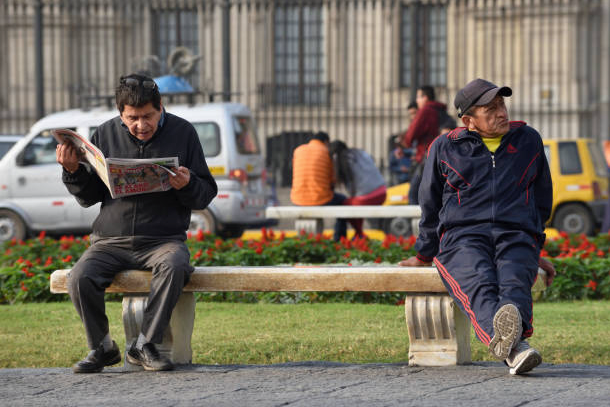Few nations manage to learn from their trajectory to change it.
In Guatemala, a prolonged internal armed conflict that claimed thousands of lives officially ended in 1996 with the signing of a series of agreements between the government and the guerrilla forces. These agreements outlined the vision for a new society — less discriminatory and more just, where a tragic confrontation like the one that had lasted for decades would never happen again.
I witnessed the effort for this change while working with the mission that the United Nations established in the country to oversee the peace accords. A friend I worked with sent me this note:
“Julio Ariz Leiva — 47 years old, coach of the San Pedro club in Guatemala — received a phone call last Sunday at noon. He was having lunch with the team at the Texas restaurant in Huehuetenango. He stepped outside. Men in police vests got out of a car and shot him 15 times. One hypothesis in the investigation suggests he refused to fix the match San Pedro was to play later that day against La Democracia, for the fourth round of the Apertura tournament in Guatemala’s second division. Another suggests he had seduced a ‘forbidden’ woman from a narco family. Ariz Leiva often said: ‘Football changed my life.’ Perhaps it also led to his death.”
In today’s Guatemala, it will never be possible to know for sure what led to his death. The justice system, which we vainly tried to “strengthen” in the country, is now absolutely ineffective, much worse than it was a quarter of a century ago. Naively, we believed back then that a series of legal and organizational tools could change the course of what had been shaped by a terrible historical trajectory.
Argentina and Peru: So different, yet similarly trapped
Guatemala is not an exception. Take the case of Peru and for comparative context, contrast it with Argentina, a country shaped by immigrants and built on different resources. Without reaching Guatemala’s extreme case, both countries seem chained to their own history, incapable of overcoming a path where societies themselves have produced inefficient and corrupt states.
The Argentine elite was considerably better than the Peruvian one. Peru’s natural resources were and still are much more varied than Argentina’s. While Argentine society achieved a certain homogeneity — at the cost of bloodily exterminating its indigenous population — Peru maintained, albeit poorly, a great cultural diversity. Despite these marked differences, two centuries after declaring independence from Spain, both countries find themselves mired in a deplorable condition.
In the short term, this bleak outlook is not always evident. In both countries, as in many others, there are moments of economic boom that lead to improved incomes for the lower classes, creating the mirage of a different future projected onto citizens’ expectations. Argentina has experienced this with every uptick in its exports, first of wheat, now of soy. Peru has gone through the same with rising mineral prices on the international market and it happened before with guano and more recently with fishmeal.
On the political scene, there have also been flashes of hope, like shooting stars, that vanish without a trace after a few years. In Argentina, this was Raúl Alfonsín, who, after the last bloody military dictatorship, attempted national reconstruction. In Peru, it was Juan Velasco, a military man who sought to change the country from top to bottom. Both efforts were stymied by pettiness, ambitions and misunderstandings that, of course, exploited an economic crisis to crush them.
A better future is not for everyone
History does not always follow this pattern. The establishment of Parliament in 13th-century England and its evolution as a political institution not only limited the monarch’s power and reduced the nobility’s role, but it also paved the way for the country’s democratization. Five centuries later, the French Revolution, with much bloodshed, changed the course of France and the world. These are the most recognized examples of instances where a society managed to break from its past and embark on a path toward becoming something different.
In Latin America, great hope was placed on the Cuban Revolution, which overthrew Fulgencio Batista in 1958 only to install another dictatorship under the Castros and their circle. Nicaragua followed a similar path, where the Somoza regime was also defeated by arms, this time by the Frente Sandinista, only for the Ortega-Murillo couple to now rule even more despotically. And the corruption entrenched in oil-rich, democratically governed Venezuela was replaced by the dictatorship of Chávez, followed by Maduro.
But this pattern is not exclusive to tropical countries in our Americas. Across the region, we have remained willing to glorify heroes who did not or could not truly change what we have no choice but to recognize as our destiny. A destiny of economic and political cycles, where the rise and fall bring about periodic despair. Thousands of citizens then leave their countries in search of a better future — a personal future, of course, because the future of their country seems impossible. Few return, having learned their lesson, when the cycle begins anew and the future appears promising once again.
What binds us to this seemingly insurmountable trajectory? It’s a question not unique to our region and scholars have developed the theory of path dependency to explain it. Simply put, the path a society takes influences the direction it can follow in the future. It’s akin to what is said about individuals: each person builds their own future. Similarly, once a decision is made and a course is set, changing direction becomes difficult, costly, or sometimes impossible, as we fail to recognize the wrong path we have chosen or lack the means to change it.
This last reason seems to carry the most weight in our societies, which fail to realize the wrong path they are on and make blind decisions, such as electing Pedro Castillo or Javier Milei. These names are just recent examples. The list of electoral blunders is long and we confidently declare that the politicians are to blame, without asking where they came from or why we chose them.
The gravest issue is that path dependency is leading to increasingly degraded societies, where a better future seems almost impossible. Yet in Argentina, the illusion of winning the next World Cup will endure, with millions believing that this will make the country great. And in Peru, though few still believe that “God is Peruvian,” people will continue buying lottery tickets, hoping their luck might change.













